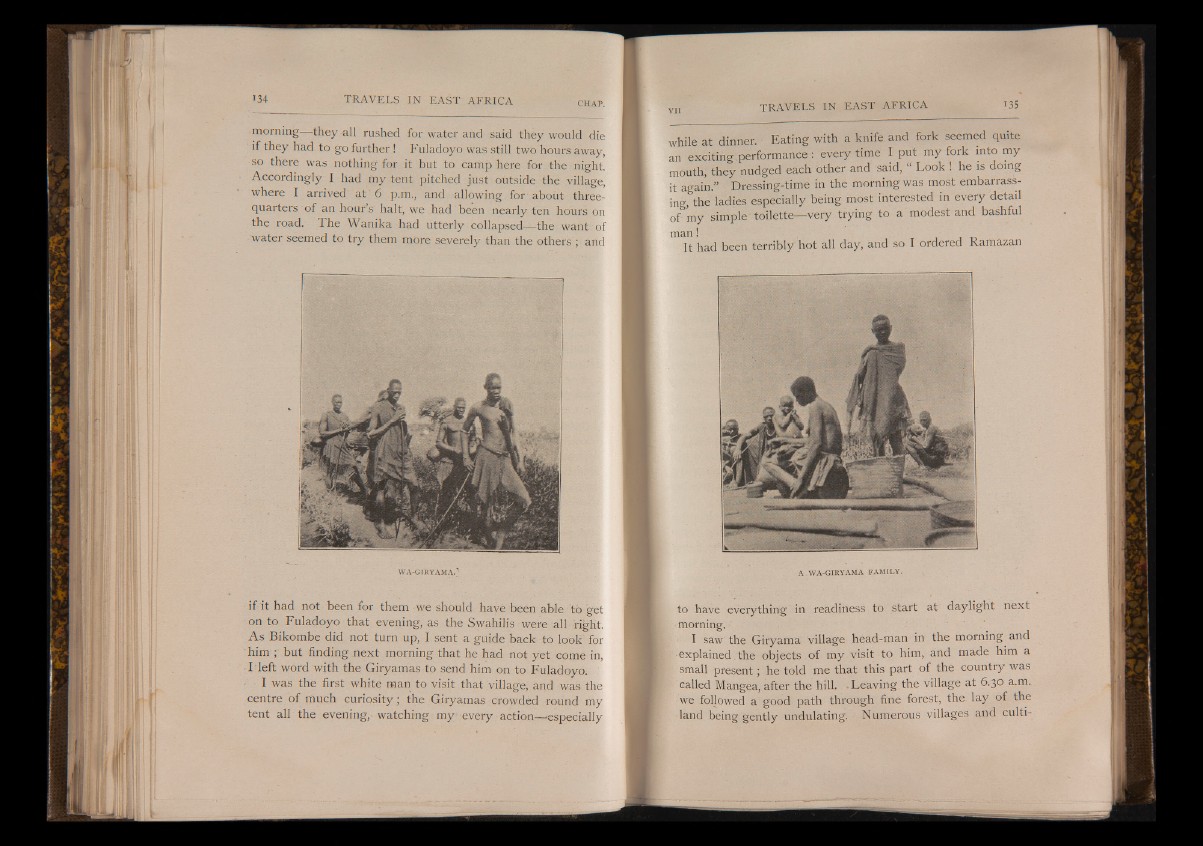
morning— they-all rushed for water and said they would die
if they had to go further ! Fuladoyo was still two hours away,
so there was nothing for it but to camp here for the night.
Accordingly I had my tent pitched just outside the village,
where I arrived at 6 p.m., and allowing for about three-
quarters of an hours halt, we had been nearly ten hours on
the road. The Wanika had utterly collapsed— the want of
water seemed to try them more severely than the others ; . and
W A -G IR Y AM A .1
if it had not been for them we should have been able to get
on to Fuladoyo that evening, as the Swahilis were all - n£ht.
As Bikombe did not turn up, I sent a guide back to look for
him ; but finding next morning that he had not yet come in,
Fleft word with the Giryamas to send him on to Fuladoyo.
I was the first white man to visit that village, and was the
centre of much curiosity; the Giryamas crowded round my
tent all the evening,-watching my every action— especially
at dinner. Eating with a knife and fork seemed quite
an exciting.performance: every time I put my fork into my
mouth, they nudged each other and said, “ Look ! he is doing
it again.” Dressing-time in the morning was most embarrassing,
the ladies especially being most interested in every detail
of my simple toilette— very trying to a modest and bashful
man! , ^
It had been terribly hot all day, and so I ordered Ramazan
A W A -G IR Y AM A F A M IL Y .
to have everything in readiness to start at daylight next
morning.
I saw the Giryama village head-man in the morning and
explained the objects of my visit to him, and made him a
small present; he told me that this part of the country was
called Mangea, after the hill. . Leaving the village at 6.30 a.m.
we followed a good path through fine forest, the lay of the
land being gently undulating. Numerous villages and cultiwhile